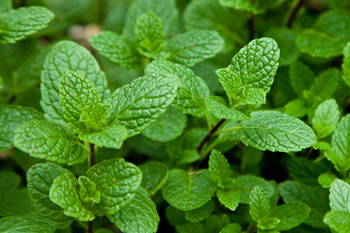Apr 22: We all know that mint leaves, also known as pudina, provides many nutritional benefits to our health. It also helps to aid digestion, improves oral health, treats cold and more.
 One can use this leaves in many ways like seasoning your salad and adding it to your cup of tea etc.
One can use this leaves in many ways like seasoning your salad and adding it to your cup of tea etc.
Here are a few health benefits of mint leaves:
The leave is loaded with anti-oxidants and phytonutrients which provide relief to the stomach muscles and help in digestion. It also soothes the stomach instantly and works wonders when it comes to treating tummy troubles.
Relives headaches and migraines
The herb is a naturally soothing substance, so it can alleviate the inflammation and temperature rise that is often associated with headaches and migraines.
Improves oral health
Mint leaves helps in improving our oral health as it is loaded with anti-bacterial and anti-inflammatory properties that kills bacteria in the mouth preventing tooth decay, beats bad breath and keeps your tongue and teeth clean naturally.
Helps relieve cough and cold
Pudina helps in treating cough and cold because of its anti-bacterial and anti-inflammatory properties that relieve inflammation along the respiratory tract.
Good for skin
The anti-inflammatory and anti-bacterial properties work wonders for acne-prone skin. Also, when applied topically, mint has the effect of calming and cooling the skin affected by insect bites, a rash or other reactions.
Boosts immunity
As mint is packed with nutrients such as calcium, phosphorous, vitamin C, D, E and small amounts of vitamin B complex, it helps in improveing the body’s immune system, keeping it safe from infections and inflammation.






Comments
Add new comment